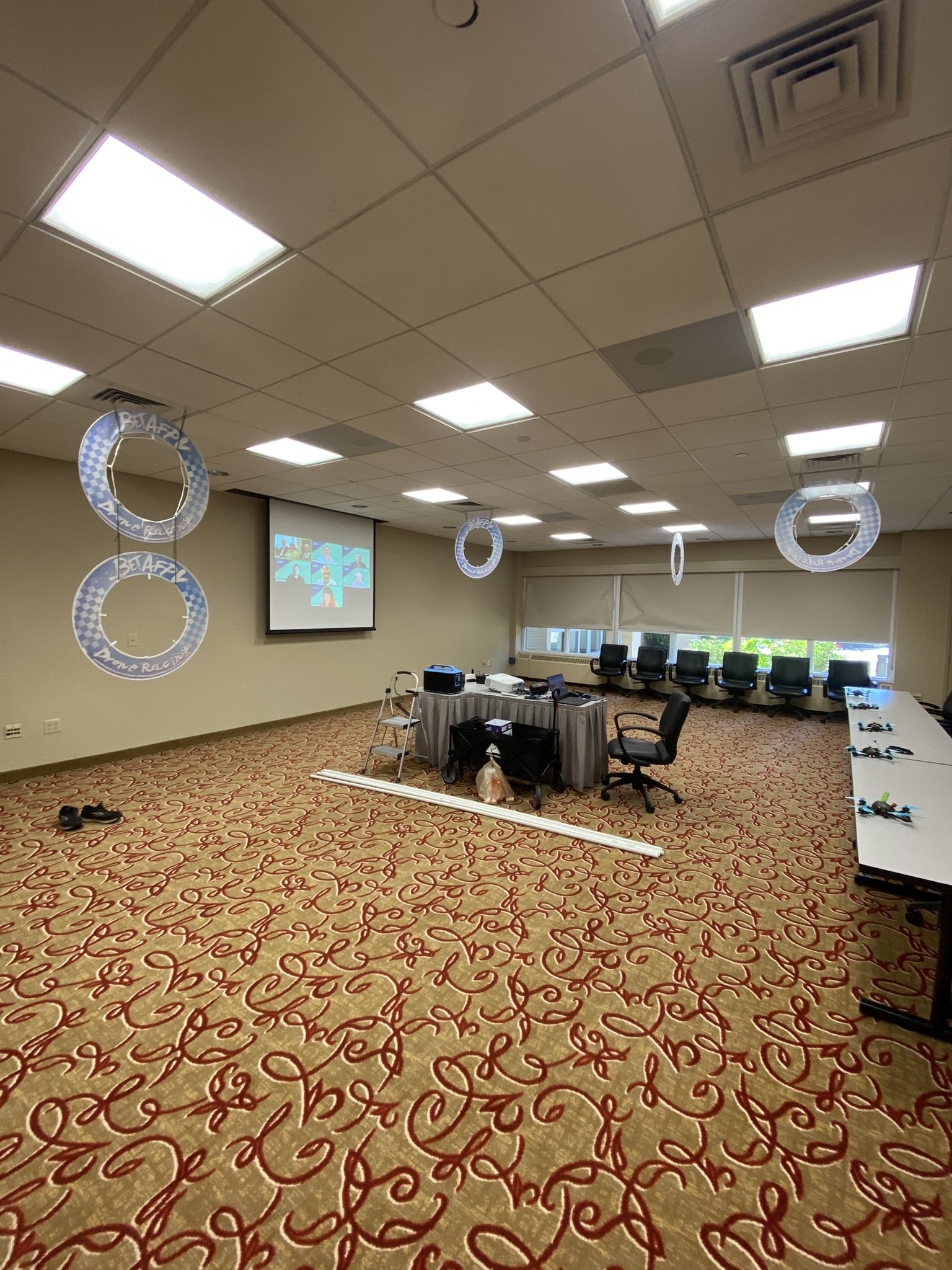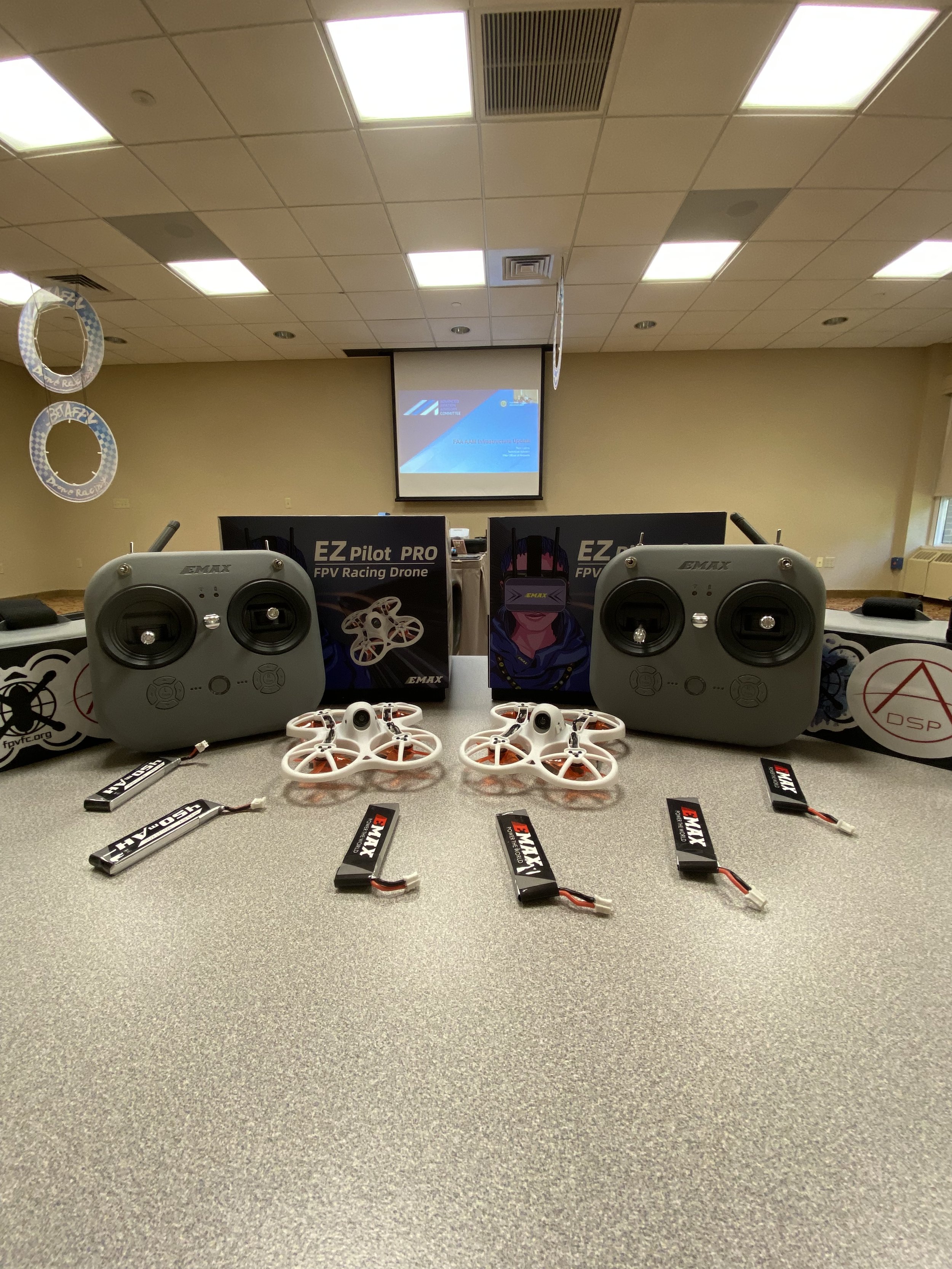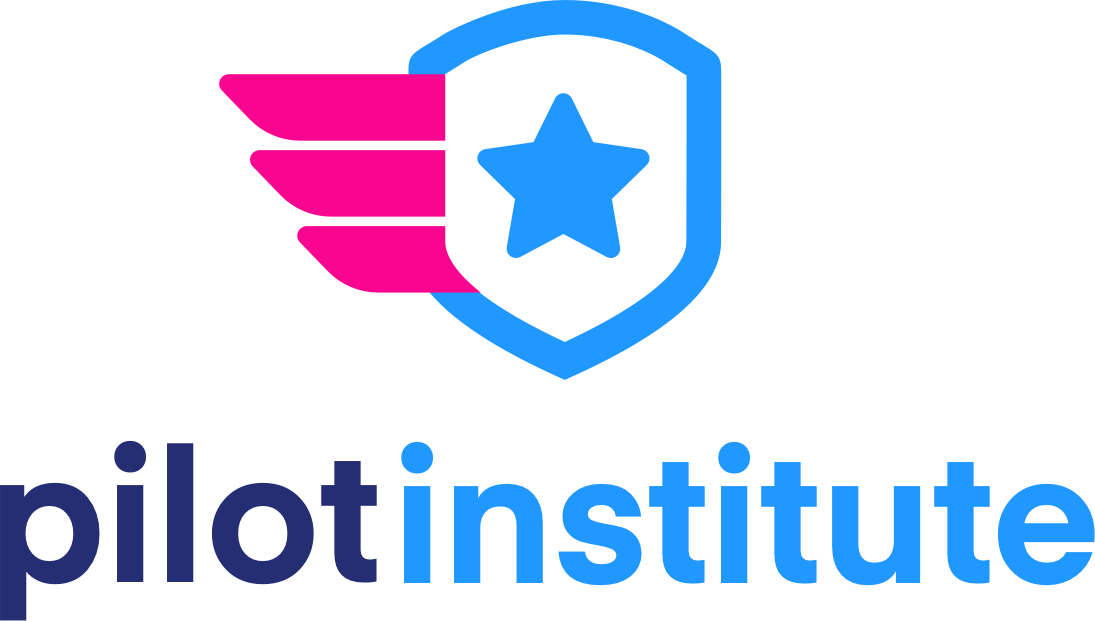FPVFC Accomplishments
Ever since our first public meeting in 2018, the FPVFC has been hard at work serving the FPV community. Much of our efforts have had a broader impact beyond FPV to all unmanned aerial vehicles being used both recreationally as well as commercially (under part 107). Below are some of the many accomplishments we have achieved since then.
The FPVFC is a 501(c)(3) not-for-profit organization.
We are a 501(c)(3) not-for-profit organization so that we fulfill all the requirements of a Community Based Organization (CBO) as defined in the FAA Reauthorization Act of 2018.
Safety Guidelines
We have created a set of safety guidelines that anyone in the FPV or sUAS community may follow. This is a key requirement for becoming a Community Based Organization (CBO). Our safety guidelines were reviewed, updated, and approved by the FAA as part of our CBO recognition process.
Community Resources
We have created a number of resources for the community over the years. When new regulation is announced or proposed by the FAA, we have created resources to help the community understand what the FAA has published. Documents like our Remote ID Summary, BVLOS ARC recap, AC 91-57c response, and many more that can be found under the resources link.
In addition, we have also created many guides to help people on their FPV journey. Such as our beginners guide to lipo batteries, getting started with FPV, and even tips for flying in cold weather. All these and more can be found on our website under the education section.
FAA Drone Advisory Committee Tasking Groups
Although we were not an official member of the FAA Drone Advisory Committee (DAC), we did have a meaningful impact on a large number of the DAC tasking groups. These tasking groups were also a great way to network with the community and create relationships with other influential people and groups. These relationships have proven to be very valuable as we continue to advocate for the means to fly with the least restriction.
Over the course our participation in these Tasking Groups, we have been influential in the following areas:
Tasking Group #4: Remote Identification
Participated in the DAC Tasking group #4, Remote Identification. Dave Messina assisted the Tasking Group lead with the role of Project Manager for the Tasking Group.
Tasking Group #5: UAS Facility Maps
Dave Messina was co-lead for this task and presented the Tasking Group’s recommendations to the DAC and FAA at the DAC meeting.
Significant accomplishments from these recommendations were the inclusion of Shielded Operations and the refinement of size of UAS Facility grid maps from approximately one mile square to one half mile square.
FAA actions included a BEYOND financial grant to five universities to investigate Shielded Operations.
The FAA refined the grid size of UAS Facility maps as recommended to grant greater resolution to the areas in restricted flight areas.
Tasking Group #6: Beyond Visual Line of Sight (BVLOS)
Dave Messina led the Command and Control (C2) - Spectrum sub-group of this Tasking Group. This included setting and leading over 13 meetings, writing a narrative and presentation and presenting the sub-group’s recommendations to the FAA and DAC at a DAC meeting.
This Tasking Group related to Section 375 of the FAA Reauthorization Act of 2018 which mandated the FAA, FCC and NTIA to cooperate to allocate protected spectrum for UAS. The FAA agreed with all recommendations of this sub-group.
Tasking Group #7: Unmanned Traffic Management
Dave Messina actively participated in the UTM Tasking Group as one of two organizations representing recreational UAS operators.
This Tasking Group recommended improved communication between the aviation industry (including UAS) and NASA, the authors of the ConOps.
Dave Messina was invited to and participated in three follow up meetings held by NASA where Dave’s Information Technology recommendations were discussed.
Tasking Group #8: Safety Culture
Dave Messina led the sub-group relating to Small Commercial Businesses. This effort demonstrates FPV Freedom Coalitions’ and Dave Messina’s active participation in areas which are adjacent to recreational UAS operation.
Dave led the Small Commercial Business sub-group including setting 16 meetings, leading these meetings, drafting the narrative and presentations and presenting the sub-group’s recommendations to the DAC and FAA at a DAC meeting.
Tasking Group #9: Situational Awareness
Dave Messina provided Project Management skills to one of the three sub-groups and was instrumental in shaping the recommendations presented to the FAA and DAC.
Key recommendations from this work included asking the FAA to approve the use of VHF two-way radios used today for aircraft to aircraft communication, to allow UAS operators and pilots to communicate with crewed aircraft.
All of the recommendations of this Tasking Group are in limbo as the FAA asked the Drone Safety Team (DST) to investigate these areas and the DST has responded that this effort is outside their scope. As Dave Messina is a DST Member, he is working to resolve this stalemate
Tasking Group #10: Gender Neutral Language
Dave Messina led the Research sub-group of this effort and provided proof points to the authors of the recommendations.
This effort was accepted by the FAA to be used across the FAA and is being considered by other Federal agencies.
Tasking Group #11: Safety Foundations for UAS
Dave Messina led a sub-group on this effort. This included setting meetings for the sub-group, drafting narrative and presentation recommendations for the sub-group.
Notable in this Tasking Group is the recommendation for Target Level of Safety (TLOS). This newer metric for improving safety is superior to tracking fatalities of UAS inasmuch as over the last five years there have been zero fatalities from any electric powered multirotor sUAS.
This effort was also delegated to the Drone Safety Team. Dave Messina joined the Drone Safety Team with the hope to help shape TLOS for UAS.
FAA Advanced Aviation Advisory Committee
In October 2021, the FAA renamed the Drone Advisory Committee (DAC) to the Advanced Aviation Advisory Committee (AAAC). While we are not currently an official member of the AAAC, we are participating in the AAAC tasking groups.
Tasking Group #12: UAS in Education for K-12
Dave Messina led a sub-group in this effort and was instrumental in identifying a practice used by the Department of Education with other agencies to incent education across the USA while acting within the state vs. Federal division of effort for K - 12 education in the USA.
Dave’s opportunity analysis as well as his Department of Education findings and recommendations were highlighted in the presentation to the FAA at a AAAC meeting.
Tasking Group #13: Advanced Air Mobility Framework
Dave Messina was co-chair of one of the five sub-groups where the subgroup analyzed the AAAM Framework.
Dave’s role was to project manage this sub-group, co-author the narrative and presentation for input to the Task Group recommendations. Dave also presented the findings from this subgroup at the October 2022 AAAC meeting.
Beyond Visual Line of Sight Aviation Rulemaking Committee
We were invited to join a select group of organizations to participate in the Beyond Visual Line Of Sight (BVLOS) Aviation Rulemaking Committee (ARC). This is another example of the FPV Freedom Coalition spending significant energy assisting in a regulation area which is adjacent to recreational with the objective of having these regulations granted to recreational operators at some point in the future. The BVLOS ARC focused exclusively on commercial UAS operating BVLOS.
As a member of the BVLOS ARC, we were able to demonstrate the importance and usefulness of an FPV camera on a drone performing BVLOS operations.
We helped influence the BVLOS ARC recommendations related to shielded operations.
We also drafted five pages of narrative describing how FPV can be used to improve situational awareness of BVLOS operations. While not replacing the benefit of a pilot in an aircraft, the BVLOS ARC supported the idea that FPV can improve safety and awareness of large BVLOS aircraft.
ASTM Remote ID Working Group
The ASTM Remote ID Working Group has been gathering for years to come up with a standard specification for all the details behind remote ID. This group has produced the first FAA approved means of compliance for remote ID.
Being a member of this group has allowed us a behind-the-scenes look at how a standard is created and approved by the FAA. It also provided us with direct knowledge of how remote ID is intended to work. As a benefit, the entire core team of FPV Freedom Coalition has become experts in Remote ID regulations and implementations.
The ASTM Remote ID working group numbers over 130 individuals. Frequently, the working members are senior managers or architects with deep technical knowledge in aviation, radio frequency transmission and aviation regulations. FPVFC’s active participation in this group has allowed us not just a voice with the Remote ID standard but we have also grown our network of people across the crewed and uncrewed aviation industry.
Flite Test and the Flite Test Community Association
In March of 2022, the FPV Freedom Coalition announced a partnership with the Flite Test Community Association (FTCA). This partnership has already benefited from the blending of our skills and focus. Flite Test has been working to provide aviation-specific STEM classes to teachers around the world and for over ten years has also sold high value, low cost radio control model airplanes to children and adults. Flite Test has grown a hobby which has been considered as dying, RC model airplanes. Flite Test’s goals have been to use aviation as a vehicle to create life-long relationships and knowledge. FPV Freedom Coalition, in the brief three years since its creation, has focused on UAS regulations and education of regulation to recreational and commercial operators and pilots. Together, FPV Freedom Coalition and Flite Test Community Association are able to better communicate regulation education to Flite Test’s two million subscribers. In addition, FPV Freedom Coalition has used its technical knowledge of multirotors to assist the Flite Test community in exploring FPV flight.
Drone Safety Team
Dave Messina was accepted into the Drone Safety Team in 2022. The Drone Safety Team is a private and public organization, staffed by the FAA and approximately eighty aviation industry companies and associations. Dave led an ad hoc committee considering the UAS Aviation Safety Reporting System. This project was highlighted at the October 20, 2022 Advanced Aviation Advisory Committee by DST co-chair, Pete DuMont. Dave and team have completed the project and presented it to the DST steering committee and all DST members in December 2022. Among the key recommendations as mentioned by Pete DuMont, the ad hoc committee recommended reducing the number of required data elements when submitting an incident report for Recreational and part 107 operations and making these submissions via mobile apps.
Community Meetings
Every other week we host a community meeting on our Discord server where anyone can join us, ask questions, discuss the latest drone related news, and learn about what we have been working on. These meetings are live streamed to YouTube and Facebook and are also available as a podcast. We encourage any and all to attend and participate! This is where we can gauge the community's understanding, interest and get feedback on all things FPVFC and regulations!
Introducing AAAC members to FPV
During the June 2022 FAA AAAC meeting, we joined forces with the DSPA with the goal of getting as many AAAC members to give FPV a try as possible. EMAX USA helped us out with some systems to use as well. We were successful in getting a number of people to try flying these tiny FPV drones.
FAA Recreational Operators Meetings
We have a recurring meeting every other week with the FAA's drone integration office outreach and engagement team. As a result of these meetings, the FAA has a better understanding of the concerns our community has and the FAA gives us feedback on their initiatives. The very successful "Droning on After Dark" series of live streams was also a direct result of our meetings with the FAA.
Keeping the Community Informed
Besides our regularly scheduled community meetings, we have tried to keep the community informed by doing interviews. Over the years we have done a number of interviews with Joshua Bardwell, as well as interviews with Michael Rollins, Geeksvana, and the FTCA.
We also keep other organizations, companies, and individuals who have a stake in the FPV and model aviation industries, informed on our thoughts on regulations. We do this to give everyone a better understanding of the impact of both new and current regulations, and how that might impact their customers and their businesses.
Friends and Allies
We are lucky to have a number of friends, allies, and endorsements from many of the major individuals and companies from around the industry. In no particular order, we count Flite Test, the Flite Test Community Association, MultiGP, Pilot Institute, GetFPV, Rotor Riot, Pyro Drone, Heli-Nation, the Drone Service Providers Association (DSPA) among those. We also count Joshua Bardwell, Brendan Schulman, as friends and advisors. We have also gained relationships with people from the following companies and organizations. The people we have worked with, have decades of experience in governmental affairs and because of our professional attitude and willingness to take on work outside of recreational-relevant actions, we have been given advice on how best to navigate our efforts. These companies and organizations include: Airbus, Boeing, General Dynamics, Google Wing, ZipLIne, Amazon Prime Air, Iris Automation, BNSF, UPS, DroneUp, L3 Harris, Skydio, DJI, Wurzbach Electronics, Intel, NUAIR, Aircraft Owners and Pilots Association, AUVSI, Air LInes Pilot Association, International. Helicopter Association International, Aviation Industry Association, RCTA, Drone Service Provider Alliance (Dave Messina is an Advisory Board Member), Alaska University - Fairbanks, and others. We are grateful to the help we have been offered from the people at these organizations and companies.
FAA recognizes FPV Freedom Coalition as a Community Based Organization
In late October of 2022, the FPV Freedom Coalition applied to become a Community Based Organization as defined by the FAA Reauthorization Act of 2018 and the FAA Advisory Circular 91-57c. We were the second organization to apply for recognition as a Community Based Organization (CBO). On December 14, 2022, the FAA recognized the FPV Freedom Coalition as a Community Based Organization. As of January 2023, we are one of three CBO’s in the USA. Also recognized by the FAA as a CBO on the same day are our good friends and colleagues from Flite Test Community Association.
Being recognized as a CBO has two benefits for the FPV Freedom Coalition. First, the FAA has committed to consult with CBOs on drone regulations. Second, only CBOs may apply to the FAA to FAA Recognized Identification Areas (FRIA). We are working with the FAA to establish a process for FRIA application submission so it is in place prior to the remote identification operator effective date of September 16, 2023.








